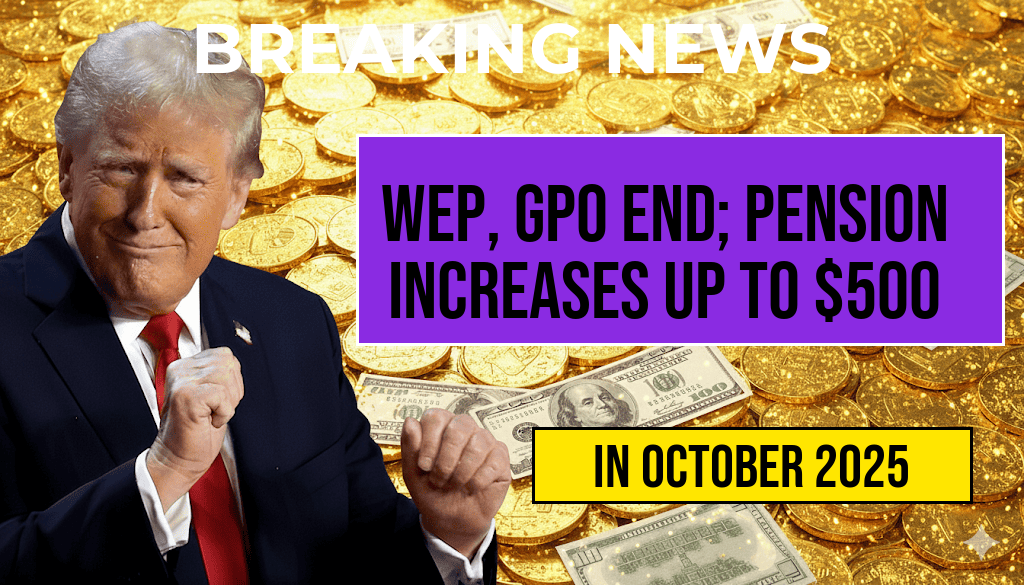Recent adjustments to the U.S. tax code are poised to deliver a significant financial boost for the nation’s wealthiest Americans. According to new estimates from financial analysts, members of the top 1% are expected to see an average net income increase of approximately $5,000 as a direct result of recent tax policy changes. This development underscores ongoing debates about income inequality, tax fairness, and the distribution of economic gains across different social strata. While the changes are modest on an individual level, their cumulative impact on the nation’s economic landscape and federal revenue remains a focal point for policymakers, economists, and advocates on both sides of the political spectrum.
Details of the Tax Changes and Their Expected Impact
Overview of the Policy Adjustments
The recent tax reforms, enacted through legislation passed earlier this year, include modifications to income brackets, capital gains taxation, and deductions applicable to high-net-worth individuals. Notably, the adjustments aim to fine-tune the existing tax framework to promote economic growth while addressing certain disparities. Key components of the reforms include:
- Increased thresholds for top income brackets, which reduce tax burdens for high earners.
- Enhanced deductions for investment income, such as capital gains and dividends.
- Revisions to estate and gift tax provisions, allowing wealth transfer with reduced tax implications.
Projected Financial Outcomes for the Wealthiest
Financial modeling by independent economists indicates that these policy changes will translate into an average $5,000 increase in net income for individuals in the top 1%. This figure reflects the combined effects of lower tax rates on investment income, increased exemption levels, and other targeted adjustments. The analysis considers current income distributions, tax compliance data, and projected economic growth figures.
| Income Group | Average Net Income Increase | Percentage Increase |
|---|---|---|
| Top 0.1% | $15,000 | 1.2% |
| Top 1% | $5,000 | 0.8% |
While the gains are relatively modest compared to the vast wealth held by the top earners, analysts argue that even slight increases in net income can significantly influence investment strategies, philanthropic efforts, and savings behaviors among high-net-worth households.
Broader Economic and Political Context
Implications for Income Inequality
Advocates for progressive taxation see these changes as a step toward more equitable wealth distribution. They argue that reducing the tax burden on the wealthy could stimulate further investment in businesses, innovation, and job creation. Conversely, critics contend that such benefits may exacerbate existing disparities, potentially widening the economic gap between the richest and the rest.
Research from institutions like [the Congressional Budget Office](https://www.cbo.gov/publication/58241) suggests that tax policies favoring the wealthy often lead to increased income concentrations at the top while providing limited direct benefits to middle and lower-income households.
Impact on Federal Revenue and Public Services
While the tax cuts for the top 1% are projected to result in an estimated $20 billion reduction in federal revenue over the next decade, proponents argue that economic growth stimulated by increased investment could offset some of these losses. However, critics warn that reduced revenue could strain public services, including healthcare, education, and infrastructure, especially if growth projections fall short.
For more on how tax policies influence government budgets, see [the IRS official site](https://www.irs.gov/).
Perspectives from Key Stakeholders
Policy Makers and Economic Analysts
Supporters of the reforms, including many policymakers from the current administration, emphasize that the changes are designed to foster a more dynamic economy. They point out that high earners contribute a substantial share of federal tax revenue and that targeted relief can incentivize continued economic activity.
Opponents, however, caution against policies that disproportionately benefit the wealthy, arguing that they undermine efforts to fund essential public programs and reduce inequality.
Public Opinion and Future Outlook
Public sentiment on tax reforms remains divided, with polls indicating a growing concern over wealth concentration and fiscal responsibility. As the effects of the recent changes unfold, debates are expected to intensify around how best to balance economic growth with social equity.
Monitoring agencies, such as the [Tax Policy Center](https://www.taxpolicycenter.org/), continue to analyze the long-term implications of these reforms, which could influence future legislative efforts in Washington.
Frequently Asked Questions
What is the main impact of the recent tax changes on the wealthiest Americans?
The recent tax changes are expected to provide the wealthiest Americans in the Top 1% with an average $5,000 boost in net income.
Who are considered the wealthiest Americans in the Top 1%?
The wealthiest Americans in the Top 1% are individuals with the highest net worth and income levels, typically including high-income earners and ultra-rich individuals.
How will the tax changes specifically benefit high-income earners?
The tax adjustments are designed to reduce tax liabilities and increase disposable income for high-income earners, resulting in the estimated $5,000 net income boost.
Are these tax changes expected to impact the overall economy?
While the article focuses on individual benefits, the economy-wide impact depends on broader fiscal policies; however, increased disposable income among the wealthy could influence investment and spending patterns.
When are these tax changes expected to take effect?
The article does not specify exact dates, but typically, tax policy changes are implemented in the upcoming fiscal cycle or as per the announced legislative schedule.






